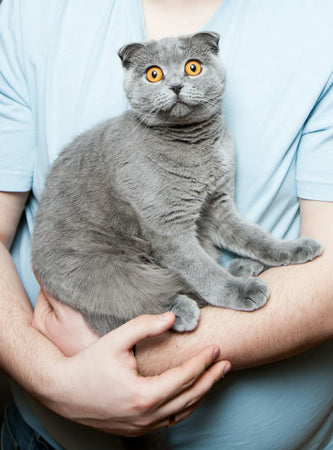
How is FIP Diagnosed in Cats?
FIP (Feline Infectious Peritonitis) is one of the most serious and fatal viral diseases in cats, especially common among kittens. It is caused by the feline coronavirus (FCoV) and typically leads to inflammation of the peritoneum. Early diagnosis of FIP is crucial for timely treatment and improving a cat's health. In this article, we will discuss how FIP is diagnosed and help cat owners understand the diagnostic process.
1. Recognizing the Clinical Symptoms of FIP
The symptoms of FIP can be difficult to identify right away because they often resemble those of other common cat diseases. Here are some of the most common symptoms of FIP:
-
Fever: Persistent fever is a common symptom of FIP, often unresponsive to antibiotic treatments.
-
Loss of appetite and weight loss: Cats will suddenly lose interest in food, which leads to noticeable weight loss.
-
Fluid accumulation in the abdomen or chest: One of the major signs of FIP is fluid buildup in the abdomen or chest, which can cause noticeable bloating in the abdomen or difficulty breathing.
-
Jaundice: The cat's eyes, skin, and mouth may appear yellow, indicating liver damage.
-
Neurological symptoms: If the FIP virus affects the central nervous system, the cat may show signs like uncoordinated movement or difficulty balancing.
These symptoms can help veterinarians make an initial assumption about FIP, but they are not enough to confirm a diagnosis on their own.
2. Laboratory Tests for FIP Diagnosis
Confirming FIP usually requires a series of laboratory tests. Common diagnostic methods include:
-
Blood tests: Cats with FIP typically show abnormal white blood cell counts, elevated protein levels, and changes in the albumin-to-globulin ratio.
-
Analysis of abdominal or chest fluid: If a cat has fluid accumulation, the veterinarian may extract this fluid for analysis. FIP-related fluid is typically yellow and high in protein. The characteristics of the fluid can help guide the diagnosis.
-
PCR Test: The polymerase chain reaction (PCR) test can detect the presence of FIP-related coronavirus genes in the cat's body. While PCR can confirm the presence of the virus, it is not sufficient to diagnose FIP on its own.
3. Excluding Other Diseases
FIP shares symptoms with many other feline diseases, such as FIV (Feline Immunodeficiency Virus) and FeLV (Feline Leukemia Virus). Therefore, before confirming FIP, veterinarians typically conduct a series of exclusionary tests to ensure the symptoms are not caused by other diseases. Common exclusionary tests include:
-
FIV and FeLV testing
-
Abdominal ultrasound: To check for tumors or other possible diseases in the abdomen.
-
X-rays or CT scans: Imaging may be needed to assess the lungs or abdomen further.
4. Confirming the Diagnosis of FIP
Currently, there is no single test that can definitively diagnose FIP, which makes it a challenging condition to confirm. Veterinarians usually rely on the combination of clinical symptoms, laboratory test results, and exclusion of other conditions to make a final diagnosis.
5. Final Diagnosis of FIP
In most cases, FIP is diagnosed based on a combination of clinical symptoms, laboratory tests, and the elimination of other possible diseases. While confirming FIP can take some time, early detection and prompt treatment are crucial for the cat’s chances of survival.
Treatment for FIP: GS-441524
Once FIP is diagnosed, prompt treatment is essential. In recent years, the antiviral drug GS-441524 has become widely recognized as one of the most effective treatments for FIP. GS-441524 is a nucleoside analog that targets the FIP virus directly, helping to reduce viral replication and improve the cat's condition.
-
Effectiveness: Studies and real-world cases have shown that GS-441524 can lead to a significant reduction in symptoms and even full recovery for many cats. It is currently one of the few treatments that can offer hope for FIP-positive cats.
-
Treatment Plan: Treatment typically involves daily injections of GS-441524 over a period of several weeks, with many cats showing improvement after just a few days of treatment.
Why Choose GS-441524 from Us?
At [Your Store Name], we offer high-quality GS-441524 that is produced in GMP-certified facilities, ensuring the purity and effectiveness of the product. Our GS-441524 is designed to provide fast relief and support the overall recovery of your cat. With our fast delivery and expert customer support, you can start your cat's treatment journey immediately.
Order Now and Give Your Cat a Fighting Chance Against FIP!
Need FIP Treatment for Your Cat?
Don't wait - early treatment gives the best chance of recovery from FIP.
Get FIP Treatment Now


